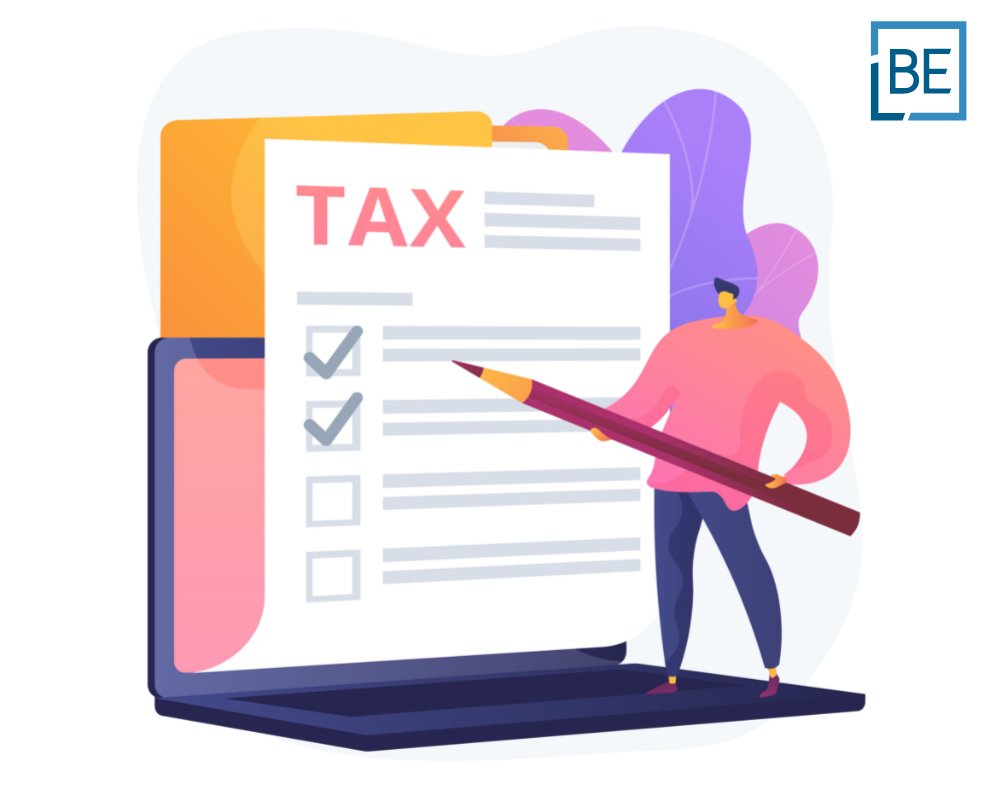Belaws Home ›› Thailand ›› Blog ›› Tax in Thailand: common mistakes and possible penalties
Accounting & Secretary
Tax in Thailand: common mistakes and possible penalties
14/11/2022
Tax in Thailand can be complicated and can easily confuse people who are not familiar with its intricacies. Thailand’s Revenue Code contains over 7 chapters and 143 pages, and if you are not careful you could violate a legal obligation without even realizing it.
Of course, taxes are unavoidable and if you are doing business in Thailand, you need to ensure full compliance with all relevant tax procedures. This is important to remember as a minor tax mistake could result in significant repercussions for your business.
Key points
- Possible penalties that may be imposed for failure to ensure tax compliance include; fines, imprisonments, work permit cancellations, and tax refund issues.
- Some of the most common tax mistakes in Thailand are issuing fake or incorrect invoices, improper withholding tax deductions, and failing to register for or paying VAT.
Common Penalties
Penalties arising from failing to properly ensure tax compliance in Thailand are divided into direct and indirect penalties.
Direct Penalties
Direct penalties typically include fines and imprisonment.
Fines
Failing to ensure tax compliance will often result in the offending party being subject to a fine as punishment. Fines usually range from THB 1,000 to THB 200,000 depending on the particular breach in question.
In addition to the fixed fines, a monthly interest rate of 1.5 percent will also be applied. Interest will be applied immediately after the taxing mistake was made, not when the fine was issued.
Additionally, failure to deduct withholding tax, and failure to or incorrectly issuing invoices may require the offending party to have to pay two times the tax amount originally owed, on top of any fine.
Imprisonment
Another potential penalty for failing to comply with tax laws is imprisonment. The length of a prison sentence relating to tax offenses varies. For example, even an offense that may be considered minor, such as forgetting to deduct withholding tax on a single invoice could result in a prison sentence of one month.
Indirect Penalties
Indirect penalties typically include the following.
Asset Seizure
Should guilty parties not be able to pay any outstanding taxes and fines, the Revenue Department has the right to seize their assets. Furthermore, they can seize your assets immediately without the need for a court judgment.
Tax Refund Issues
Please note that this particular indirect penalty is not stated in Thailand’s Revenue Code.
Should a company face an issue relating to its tax payment, this could significantly slow its tax refund process. As a result, the company will not be able to receive any tax refund at all, until the issue has been rectified. This could cause a significant loss of money to the company as tax refunds are often a significant amount.
Cancellation of a Work Permit
Failure to immediately pay any outstanding taxes could cause significant issues for extending a work permit in Thailand. This is the case because when you go to extend the work permit, you will be asked to provide tax certificates and financial statements for the previous year. Should you not have this, you will not be able to extend your Work Permit, which means you would not legally be able to work in Thailand.
Commonly made tax errors
As mentioned above, tax can often be a confusing area for companies. Below is a list of the most commonly made tax errors by companies.
VAT Registration
Value Added Tax (VAT) registration is mandatory for any company that has a gross income of THB 1,800,000 or more per year. According to Thai Revenue Department rules, all Thai companies must register for VAT within 30 days of reaching this threshold.
Failure to register your company for VAT after meeting the THB 1,800,000 threshold will result in a penalty and/or fine being imposed on your company. Penalties include a double tax rate for any revenue above 1.8 million THB and a monthly interest rate of 1.5% being imposed.
Please click here for more information about VAT registration in Thailand.
Issuing invoices
If your company issues an invoice that does not satisfy the Revenue Department’s standards, you may be subject to a fine of THB 2,000 per invoice.
The Revenue Department defines an invoice as any financial record, including tax invoices, tax certificates, debit notes, credit notes, etc.
Additionally, if your company intentionally fails to issue an invoice in order to avoid paying taxes, the punishment could be a maximum of seven years in jail and a THB 200,000 fine. Guilty parties will also be liable to pay two times the amount of tax owed with 1.5 percent interest per month added as well.
Withholding tax deductions
Withholding Tax can be confusing for new companies in Thailand. Withholding tax (“WHT”) is a deduction from payments made to suppliers who provide a service. Whether WHT is applicable and what rate to deduct depends on the nature of the service provided. WHT also applies to interest and dividend payments.
Expenses that require the deduction of withholding tax are:
- Expenses for services and professional fees
- Expenses less than THB 1,000 in the case that a long-term contract is in place (ie telephone or internet bills)
- Rent
- Rental service fees
- Royalties
- Interest
- Advertising
- Dividends
Withholding tax certificates need to be issued for every deduction. If a company forgets to deduct withholding tax, issue a tax certificate, or provide a monthly report to the Revenue Department, they may be subject to imprisonment and/or fines.
Furthermore, your company may also be required to pay two times the amount of withholding tax owed as well.
Delayed Tax Payments
Companies must file and report their taxes to the Revenue Department at regular intervals. Failure to pay any taxes on time may result in a fine of between 1,000 to 2,000 THB with a 1.5 percent monthly interest rate per case.
For more information about tax deadlines for Thai companies, please check out our blog post.
How can Belaws help?
To learn more about tax in Thailand, why not take a look at our tax services?
Additionally, you can talk directly to one of our experts.
If you would like to learn more about how our experts can help with your accounting and secretary needs, please check out our full list of services.
Please note that this article is for information purposes only and does not constitute legal advice.
Our consultations last for a period of up to 1 hour and are conducted by expert Lawyers who are fluent in English, French and Thai.
Consultations can be hosted via WhatsApp or Video Conferencing software for your convenience. A consultation with one of our legal experts is undoubtedly the best way to get all the information you need and answer any questions you may have about your new business or project.
USD 150
Up to 1 hour
Online payment (Paypal or Credit card)
Legal consultation can be conducted in English, French or Thai
Legal consultations are handled by experienced lawyers from the relevant fields of practice
Frequently asked questions about work permits in Thailand
How does withholding tax work in Thailand?
Withholding Tax can be confusing for new companies in Thailand. Withholding tax (“WHT”) is a deduction from payments made to suppliers who provide a service. Whether WHT is applicable and what rate to deduct depends on the nature of the service provided. WHT also applies to interest and dividend payments.
Tax deduction in Thailand
Expenses that require the deduction of withholding tax are:
- Expenses for services and professional fees
- Expenses less than THB 1,000 in the case that a long-term contract is in place (ie telephone or internet bills)
- Rent
- Rental service fees
- Royalties
- Interest
- Advertising
- Dividends
How does VAT registration works in Thailand?
Value Added Tax (VAT) registration is mandatory for any company that has a gross income of THB 1,800,000 or more per year. According to Thai Revenue Department rules, all Thai companies must register for VAT within 30 days of reaching this threshold.
Failure to register your company for VAT after meeting the THB 1,800,000 threshold will result in a penalty and/or fine being imposed on your company. Penalties include a double tax rate for any revenue above 1.8 million THB and a monthly interest rate of 1.5% being imposed.
Please click here for more information about VAT registration in Thailand.
Related articles
Subscribe today
Subscribe today
To our newsletter for all the latest legal news
in South East Asia, Belaws updates and
special promotions on our services.
To our newsletter today for all the latest legal news in South East Asia,
Belaws updates and special promotions on our services.







